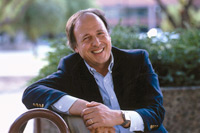
Opinion: Top challenges for health care supply chain management
Americans concerned with the growing proportion of GDP devoted to healthcare would do well to consider the industry’s supply chain. Soon the cost of drugs and medical supplies will equal the cost of labor and benefits in the U.S. healthcare system, a situation that could derail reforms aimed at increasing access and coverage. Professor Eugene Schneller, who heads the W. P. Carey School’s Health Sector Supply Chain Research Consortium, offers his top 10 list of challenges for health care supply chain managers. This is the first in an occasional series of opinion essays authored by experts at the W. P. Carey School of Business.




